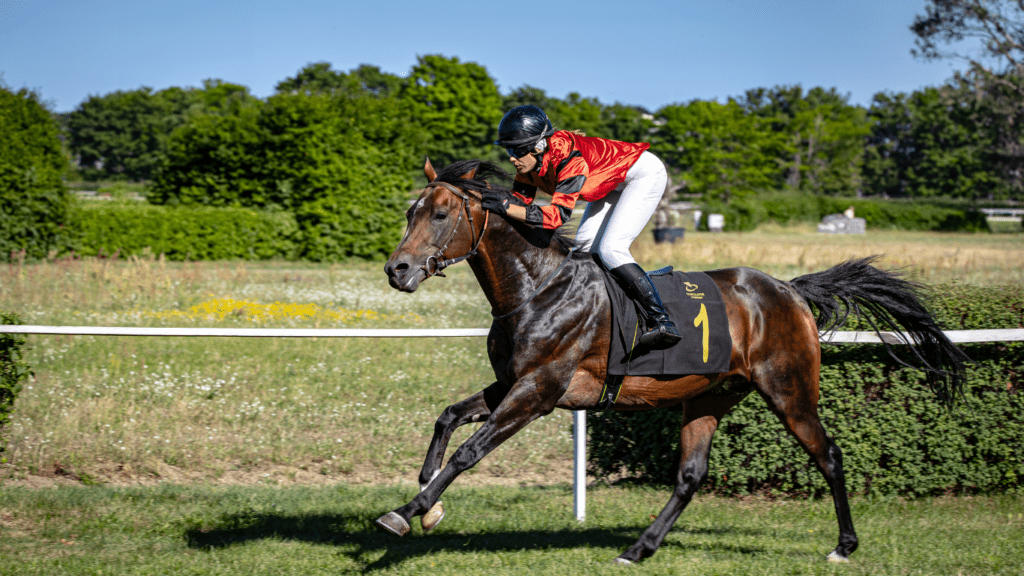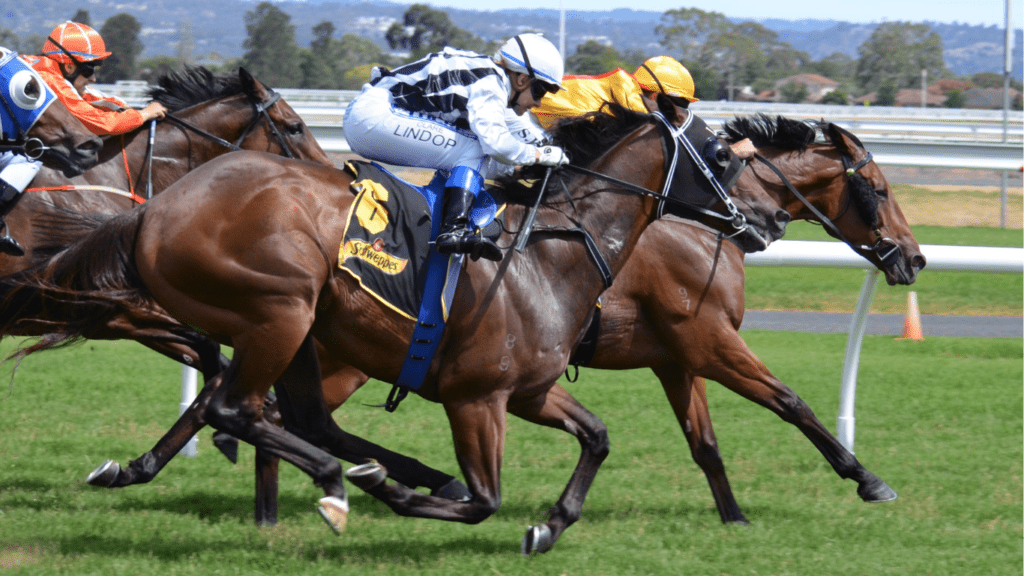Understanding Horse Racing Betting
Horse racing betting offers various opportunities to engage with the sport. Familiarity with the types of wagers and essential terminology enhances decision-making and potential outcomes.
Types of Horse Racing Bets
Several bet types are popular in horse racing:
- Win: A straightforward wager on which horse will finish first.
- Place: A bet predicting a horse will finish in either first or second place.
- Show: This wager pays if the chosen horse finishes in the top three.
- Exacta: Predicting the first two finishers in the precise order.
- Trifecta: A bet where you pick the first three finishers in exact order.
- Superfecta: A more challenging wager predicting the first four horses in exact order.
Each type offers varying risks and potential rewards, allowing for strategic diversification of bets.
Key Terms to Know
Understanding these terms helps navigate betting conversations:
- Odds: Represent the probability of a horse winning and determine payout amounts.
- Payouts: The amount received if a bet succeeds, influenced by odds and wager amount.
- Handicap: A method to level the field by assigning weights to horses based on past performance.
- Furlong: A unit of distance used in racing, equivalent to 1/8 of a mile.
- Scratch: Refers to a horse withdrawn from a race after bets have been placed.
Knowledge of these terms enhances engagement and equips bettors to make informed decisions.
The Do’s of Betting on Horse Racing

Navigating horse racing betting involves making informed decisions. Certain practices elevate the experience and improve odds of success.
Researching Horses and Jockeys
Comprehensive research on horses and jockeys contributes to informed betting. Examine past performance data, fitness levels, and recent form of horses. Consider jockey experience with specific horses or tracks. Winning streaks or significant victories offer insights into potential outcomes.
Setting a Budget
An essential practice in betting calls for setting a clear budget. Determine a fixed amount to wager, reducing unnecessary risks. Stick to the budget, avoiding chasing losses. Responsible budgeting enhances the enjoyment of the races without financial stress.
Analyzing Race Conditions
Race conditions significantly influence betting choices. Analyze factors like weather, track surface, and distance. Horses often perform differently based on environmental and physical conditions. Understanding these factors contributes to strategic bet placement.
Using Reputable Betting Platforms
Choosing reputable betting platforms ensures secure transactions. Verify licenses and user reviews to identify trustworthy platforms. Established platforms often provide better odds and valuable insights. Secure environments protect personal and financial information, enhancing the overall betting experience.
The Don’ts of Betting on Horse Racing
Betting on horse racing can be thrilling, but it’s essential to avoid certain pitfalls that could undermine success.
Relying on Luck Alone
Hoping for wins through luck alone leads to disappointing results. Instead, I analyze horse statistics, jockey performance, and track conditions to make informed decisions.
Chasing Losses
Continuing to bet after a loss in hopes of recuperating money often leads to larger losses. I maintain discipline by sticking to my budget, irrespective of prior outcomes.
Ignoring Expert Advice
Dismissing insights from seasoned professionals diminishes betting strategy potential. I integrate expert opinions into my research routine to gain a competitive edge.
Betting Beyond Your Means
Wagering more than I can afford risks financial stress and diminishes the joy of betting. Responsible betting involves setting and adhering to a budget.
Tips for Successful Betting
Success in horse racing betting comes from a blend of strategic planning, record keeping, and ongoing learning.
Developing a Strategy
Building a betting strategy improves decision-making. I analyze race statistics and study horse and jockey form. By considering various wager types and their odds, I tailor my approach for each race. Diversifying bets can minimize risks and enhance potential returns. Knowledge from past results helps refine this strategy over time.
Keeping Records of Bets
Maintaining detailed records of my bets is crucial. I log wager types, amounts, race details, and outcomes. Analyzing this data reveals patterns, helps identify successful strategies, and highlights areas needing adjustment. It also aids in managing my budget more effectively, preventing unnecessary losses.
Learning from Past Bets
Reflection on past betting experiences offers valuable insights. I review both wins and losses to understand the factors leading to each result. This analysis informs future strategies and prevents the repetition of mistakes. By learning from past bets, I continually improve my betting acumen and enhance my chance of success.



